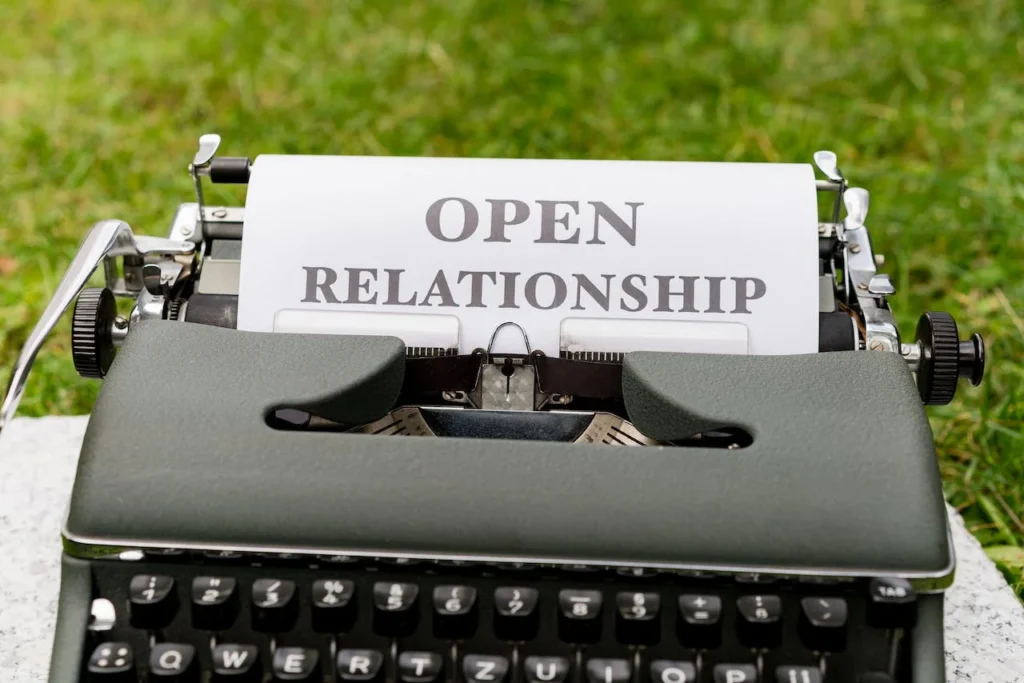Truth & Goodness
Seconds from Midnight: The 2026 Doomsday Clock Hits 85 Seconds
18 February 2026

One of the fundamental values that humans have evolved and developed is the sense of freedom. Freedom means the ability to realize oneself and one’s goals and to take responsibility for one’s actions. It also implies the freedom of choice. But what happens to our lives when we decide on monogamy? This is, after all, a significant limitation.
According to the Institute for Social Change Research, as many as 12% of Poles admit to infidelity. Nearly 7% of adults have cheated at least once. Men constitute 61.4% of those who cheat, and women 38.6%. Nearly 13% of such incidents occur in marriages, and 14% in engagements. Infidelity mainly occurs among residents of large cities.
It is the most widespread type of marital relationship in which one person is bound in a lasting and exclusive manner to one partner. Marital monogamy exists on all levels, including social, emotional, and legal.
Monogamy can be consistent, meaning fidelity to one partner until their death. In the marriage vow, in Polish, English, and other languages, there is a phrase about “not forsaking until death, in health and in sickness.” Perhaps it is this part of the vow that gives monogamy its deepest meaning because, in swearing it, we know that our partner will not leave us in hard times, nor will we leave them. The relationship between two people thus becomes permanent and indissoluble.
However, what happens when a partner dies? We then move to another type of monogamy, so-called serial monogamy. This involves committing to another person permanently. Serial monogamy also applies to divorcees who form a stable pair with another person, with the condition of remaining faithful.
Anthropologists studying tribal cultures concluded that although monogamy is the model in only 150 out of 1200 cultures studied (according to historian Krzysztof Szymborski’s research), the most populous communities are indeed monogamous. Even where polygamy is permissible, it is usually only leaders and exceptionally wealthy men who practice it.
Monogamy has its advantages, likely the reason for its dominance since antiquity. Primarily, it provides stability, and peace and security are values that we highly cherish. Having a partner can make life seem easier. There is less need to seek out others. Together, it is simply easier to overcome the challenges of everyday life. If it is so good, then why are there problems?
We recommend: The Neurobiology of Passion: How the Brain Copes With the Power of Love
The stronger the position of marriage, the more widespread prostitution becomes. This was the case in ancient Athens and Rome. Where divorces were frowned upon or outright inadmissible, men often turned to mistresses. This happens today as well. Infidelity does not necessarily lead to divorce. Spouses, who share many connections, such as young children or other commitments like loans, often decide to stay together.
Is monogamy a nail in the coffin? People often enter marriage in haste, as dictated by culture and tradition. Rarely do we consider if such a step will be disadvantageous for us. We believe that since our parents and grandparents did it, it cannot mean anything bad for us. However, our ancestors lived in completely different times, where freedom, especially personal freedom, was severely limited.
Monogamy, however, involves continuous compromises that can limit even our self-development. When making decisions, we must take our partner’s opinion into account, which is not always beneficial for us. Cultural history clearly shows that women bore the brunt of such choices. By “sacrificing” their careers and focusing on caring for the home and raising children, they often ended up alone, without any savings.

Polygamy takes various forms. Polygyny occurs when one man is in a relationship with more than one woman, while polyandry is when a woman has multiple partners. There are also groups (e.g. sects) living with multiple partners. However, does the freedom and sexual liberty that polygamy offers guarantee happiness? While initially, this lifestyle may seem fascinating, over time, basic human instincts, underlined with fear, come into play.
Common reasons for leaving a monogamous relationship include:
Often, in a sort of desperation, decisions are made in the belief that a new lifestyle will heal all our problems. Anyone can decide to cheat on their partner, as there is no prison for it… But can we bear the weight and consequences of such a decision? What if the new relationship also fails the test of time? It may bring the same problems as the previous one.
We recommend: Hearts Wide Open: Five Types of Love
One of the primary downsides of such relationships is the consequences borne by children born from these relations. It is unclear who should play the father’s role. The biological father? Or the current partner, who might soon be replaced by another? This means a lack of security and stability, which are fundamental for most of us. While partners tired of marital fidelity throw themselves into the whirlwind of freedom, it may turn out that this decision might drown them rather than give them wings. Future consequences that impact future generations are often overlooked. The prevailing belief is that everyone has the right to “happiness” and that this happiness is simply owed to them. Another matter is how we define this concept.
Another downside of polygamy is the fear of losing a partner. If everything is allowed and permissible, then it must be understood literally: my partner is with me today, but tomorrow they have the right to leave me for someone more attractive. Are we really ready for this mentally and emotionally?
Polygamous partners also suffer from a lack of commitment, which is natural when these relationships are neither lasting nor closed. There is a problem with mutual, long-term support, such as building a shared future, sacrificing for a partner’s career, and planning education for children.
It seems that women lose the most in such relationships, bearing the entire burden of upbringing. Men, instead of spending time with their family, devote it to meetings with other women. From the perspective of men, it is a beneficial relationship that provides them with unrestricted access to various sexual partners. However, this also has its downsides, not limited to sexually transmitted diseases. Such a lifestyle also causes stress and mental burnout, which can negatively affect professional work. Even if someone tries to lead a polygamous life fairly, it often turns out that they cannot meet the high demands such a lifestyle entails. This, in turn, leads to frustration.
Finally, there is the social evaluation of such behavior. Most of us still condemn these types of behaviors and consider them immoral. A person who engages in polygamy cannot naturally count on support and respect from those close to them; on the contrary. The question remains: are they ready for this, and is such a decision worth it?
You may also like:
Translation: Klaudia Tarasiewicz

Science
17 February 2026

Science
17 February 2026

Zmień tryb na ciemny